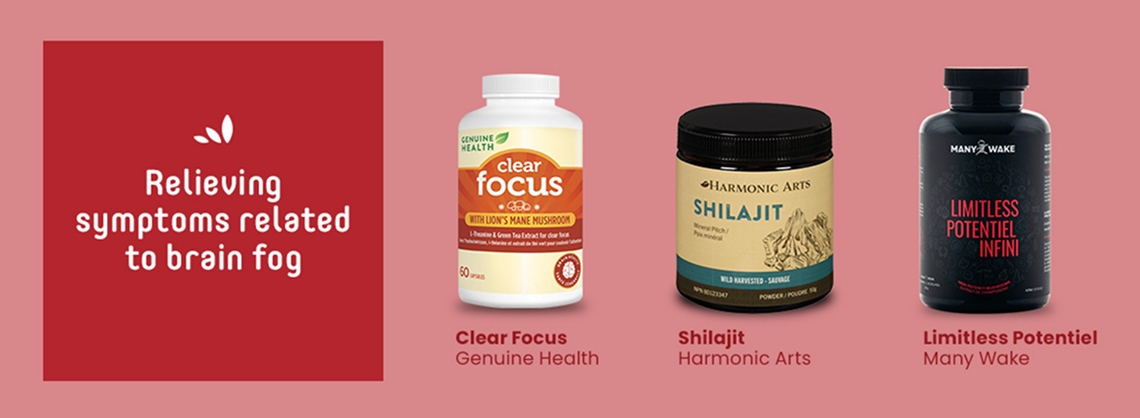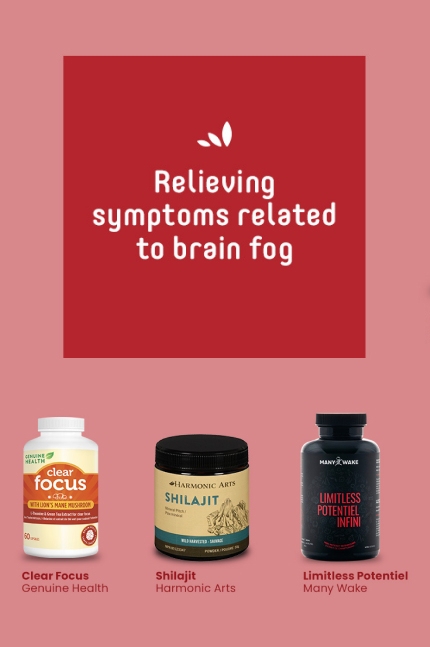While the start of the school year brings renewed energy, it also comes with its fair share of challenges: busy schedules, mental overload, adapting to new routines, and much more. Many find it difficult to stay concentrated during this period, whether they are a child, teenager or adult. This phenomenon, while common, is not to be taken lightly, as it can impact quality of life, learning and overall well-being.


There are a number of possible reasons behind this drop in concentration. In children and adults alike, the modern environment plays an important role: overexposure to screens, constant stress, multitasking and chronic stress overload the nervous system, making it harder to stay focused on one thing. This lack of focus can also be due to food. A diet that is too low in essential nutrients, such as omega-3, iron, magnesium or group B vitamins, impairs the transmission of nervous signals, leading to fatigue and mental fog. Hormonal imbalances can also play a role, particularly in teens or adults under prolonged stress, where excess cortisol can muddle the mind.
Certain natural products can play a valuable supporting role when our children do not have a sufficiently varied diet. Omega-3s are undoubtedly the most effective option for supporting brain development and improving memory and attention. In a study of 534 children and adolescents with ADHD, omega-3 supplementation significantly improved the clinical symptoms of this disorder. In a subgroup of 214 youth, this supplementation also significantly improved attention-related cognitive abilities. If your child doesn’t eat fish at least 2 times a week, an omega-3 supplement may be worth trying.
For children whose main issue is restlessness or nervousness, Roman chamomile in the form of an essential oil applied to the wrists and then inhaled may help calm nerves. In dried leaf form, German chamomile is a classic for children, either as an infusion steeped for a few minutes or added at bath time.
Teens, on the other hand, face hormonal changes that can affect their emotional and cognitive stability. Magnesium, which is often deficient in teenagers, can help calm nervous hyperactivity and promote better sleep, directly impacting the ability to concentrate. Results from one study showed that combined magnesium and vitamin D supplementation significantly improved sleep quality as well as some behavioural symptoms related to ADHD.
Finally, a lemon balm infusion at the end of the day can help relax overly stimulated minds without affecting alertness the next day.
Concentration issues in adults often stem from mental overload, with too many things to juggle, no proper breaks, and the build-up of stress. This is where skullcap comes in handy. This little known but highly effective plant acts like a balm on the nervous system, soothing the mind without slowing it down—ideal for racing minds. Taken as a herbal tea, mother tincture or in a complete formula for the nervous system, skullcap’s effects have the potential to significantly improve mood and stress while promoting relaxation.
In summary, there’s no one single solution to keeping your concentration levels up, but rather in the subtle balance between a healthy lifestyle and peaceful environment along with natural products tailored to each individual’s profile. By using a natural, gradual approach that respects the needs of each age group, it is entirely possible to have a clearer mind, greater self-awareness and a more serene return to school for the whole family.
Anne-Sophie Mathurin, Naturopath, ÉESNQ graduate
Ecole d’enseignement supérieur de naturopathie du Québec
The health and medical information published or presented in this article is the opinion of the author only and should not be used as a substitute for professional medical advice. Readers should use their judgment. It is their responsibility to independently verify the information provided in the article. The contents of this article are for discussion and informative purposes only and should never be used as a substitute for professional medical advice, diagnosis, or treatment. A medical professional is the only person who can evaluate your health and give you advice following a medical examination. Rachelle Béry will not be liable for any of the information presented in this article or in any associated links, nor the use or misuse of the information.
Sources and references:
1. Flora Medicina, Materia Medica 4th edition
2. Chang JP, Su KP, Mondelli V, Pariante CM. Omega-3 Polyunsaturated Fatty Acids in Youths with Attention Deficit Hyperactivity Disorder: a Systematic Review and Meta-Analysis of Clinical Trials and Biological Studies. Neuropsychopharmacology. 2018 Feb;43(3):534-545. DOI: 10.1038/npp.2017.160. Epub 2017 Jul 25. PMID: 28741625; PMCID: PMC5669464.
3. Panossian A, Wikman G. Evidence-based efficacy of adaptogens in fatigue, and molecular mechanisms related to their stress-protective activity. Curr Clin Pharmacol. 2009 Sep;4(3):198-219. DOI: 10.2174/157488409789375311. Epub 2009 Sept. 1. PMID: 19500070.
4. Ivanova Stojcheva E, Quintela JC. The Effectiveness of Rhodiola rosea L. Preparations in Alleviating Various Aspects of Life-Stress Symptoms and Stress-Induced Conditions-Encouraging Clinical Evidence. Molecules. 2022 Jun 17;27(12):3902. DOI: 10.3390/molecules27123902. PMID: 35745023; PMCID: PMC9228580.
5. Ivanova Stojcheva E, Quintela JC. The Effectiveness of Rhodiola rosea L. Preparations in Alleviating Various Aspects of Life-Stress Symptoms and Stress-Induced Conditions-Encouraging Clinical Evidence. Molecules. 2022 Jun 17;27(12):3902. DOI: 10.3390/molecules27123902. PMID: 35745023; PMCID: PMC9228580.
6. Chang JP, Su KP, Mondelli V, Pariante CM. Omega-3 Polyunsaturated Fatty Acids in Youths with Attention Deficit Hyperactivity Disorder: a Systematic Review and Meta-Analysis of Clinical Trials and Biological Studies. Neuropsychopharmacology. 2018 Feb;43(3):534-545. DOI: 10.1038/npp.2017.160. Epub 2017 Jul 25. PMID: 28741625; PMCID: PMC5669464.
7. Hemamy M, Pahlavani N, Amanollahi A, Islam SMS, McVicar J, Askari G, Malekahmadi M. The effect of vitamin D and magnesium supplementation on the mental health status of attention-deficit hyperactive children: a randomized controlled trial. BMC Pediatr. 2021 Apr 17;21(1):178. DOI: 10.1186/s12887-021-02631-1. Erratum in: BMC Pediatr 2021 May 12;21(1):230. DOI: 10.1186/s12887-021-02683-3. PMID: 33865361; PMCID: PMC8052751.
8. Buccato DG, Ullah H, De Lellis LF, Piccinocchi R, Baldi A, Xiao X, Arciola CR, Di Minno A, Daglia M. In Vitro Assessment of Cortisol Release Inhibition, Bioaccessibility and Bioavailability of a Chemically Characterized Scutellaria lateriflora L. Hydroethanolic Extract. Molecules. 2024 Jan 25;29(3):586. DOI: 10.3390/molecules29030586. PMID: 38338331; PMCID: PMC10856628.
9. Brock C, Whitehouse J, Tewfik I, Towell T. American Skullcap (Scutellaria lateriflora): a randomised, double-blind placebo-controlled crossover study of its effects on mood in healthy volunteers. Phytother Res. 2014 May;28(5):692-8. DOI: 10.1002/ptr.5044. Epub 2013 Jun 22. PMID: 23878109.
